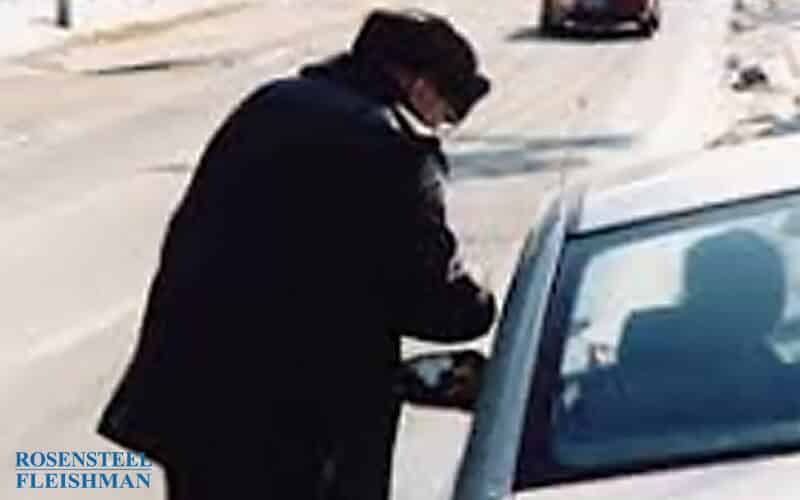I. Justice in the Courts One of the largest jail systems in America (Cook County, Illinois) has estimated that almost a third of all inmates have a serious mental or physical disability. A cursory look at who gets a “criminal record” in America is just as sobering. Almost half of all African-American males and fully […]

The Warrant Exception to a Lawful Search
Under the Fourth Amendment of the Constitution, each person has the right to be “secure in their persons, house, paper, and effects against unreasonable searches and seizures, shall not be violated, and no warrants shall issue, but upon probable cause, supported by oath or affirmation, and particularly describing the place to be searched, and the persons or things to be seized.”
So what does this all mean? This means that an individual may not be searched or seized without a valid search warrant. However, there are exceptions to the Fourth Amendment protection of unreasonable searches and seizures without a warrant. One of such exceptions is the search incident to lawful arrest (SILA). Under this warrant exception, an officer may search the immediate area where someone was arrested. The officer is justified in doing so because of safety concerns and to preserve evidence. The officer is limited in his scope, and lawfully may not search an area outside of where the arrestee was arrested and/or the area immediately surrounding the arrestee. It is key to remember that in order for this warrant exception to be legal, the officer may not exceed the scope of the search, and if the officer does, the search may be deemed illegal and use of any evidence obtained from such a search may be suppressed and not used against the arrestee.
State v. Gant (2009), was a hallmark case in determining the validity of SILA. In Gant, police suspected drug activity at a residence and went to investigate. When reaching the residence, the officers were met at the door by the defendant, who informed them that the owner was not home and that he would be home later. When the police left, they ran a record search on the defendant and saw that he had an outstanding warrant for driving with a suspended license. At that point, the officers went back to the residence and waited for the defendant to return that night. When he pulled up and exited his vehicle, the officers approached him. They then arrested and handcuffed him and placed him in the back of the cruiser. After handcuffing and securing the defendant, the officers went back and searched the defendant’s vehicle and found cocaine.
The defendant was charged with drug offenses, but moved to suppress the cocaine. He argued that there was no risk that he would access a weapon in his car or that there was evidence related to his arrest that could have been destroyed. The lower courts agreed with the defendant, but ultimately the Supreme Court granted certiorari to determine how long after an arrest a vehicle could be searched and still be contemporaneous with an arrest and to determine if a prior case relating to this issue should be reconsidered. The Supreme Court reached a decision favorable to the defendant. The Court reiterated that the purpose of SILA is for officer safety and to prevent the destruction of evidence and concluded that vehicle searches incident to lawful arrests are only permissible if they are in furtherance of those two rationales. The majority held that an officer may only search the inside of a vehicle after an arrest if the arrestee is not secured and is in reaching distance of the passenger compartment at the time of the arrest.
In this case, the defendant was secured and therefore was not a threat to officers. Furthermore, he was arrested because he had an active warrant for driving with a suspended license. Therefore, after he was handcuffed and secured, officers did not have a reason to believe that they would find evidence relating to his driving on a suspended license in his vehicle.
Although the Gant decision gives two very specific reasons when it is permissible for an officer to search an arrestee and his immediate area after an arrest, there are some concerns with the decision. By making it lawful to search an arrestee only if he is unsecured, it may make officers more prone to not handcuff and secure an arrestee when they otherwise would have if this narrow exception to having a search warrant did not exist or more narrow. In addition, there appears to be a bigger loophole to allow unreasonable searches.
If you feel like you have been a victim of an unreasonable search or seizure when you were arrested, contact our office to schedule a consultation with one of our highly experienced attorneys.
Additional Criminal Defense Articles
I. Charlotte Attorney Who Listens So-called “investigatory traffic stops” have long been a concern of experienced Charlotte criminal defense lawyers. This is because these stops often have a dragnet component, which can be roadblocks to important principles of constitutional law. The case had all the makings of major theater. The investigation that resulted in Mr. […]
I. The rules of evidence Events often spin out of control, creating a criminal nightmare for someone’s life… such as in the following case, where a planned night out turned into a horrific series of trials. As so often happens, a love triangle gone wrong (and drugs) were the two major precipitating factors in violence. […]
I. A difficult situation Victims also include people who have been wrongfully accused. Criminal defense lawyers have been one reason that rights have been won, for literally thousands of victims. rape charges, especially demonstrate, just how important crim defense lawyers are in terms of getting to the truth of assault charges. False accusations of rape […]
